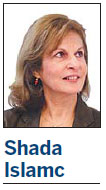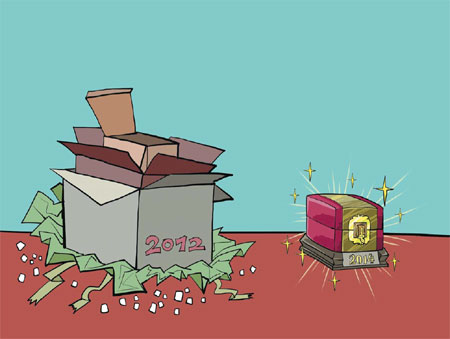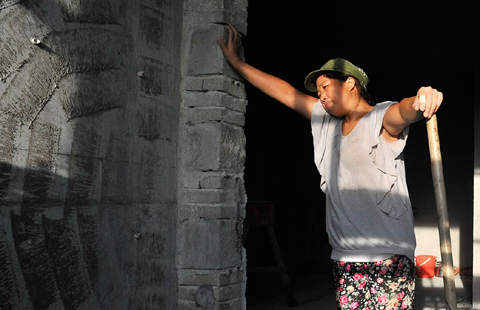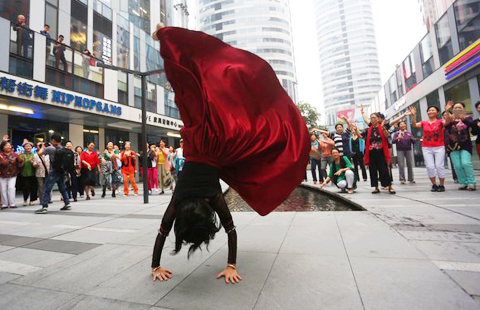Leaner, slicker and more user-friendly
Updated: 2014-10-10 07:33
By Shada Islamc(China Daily Europe)
|
|||||||||||

ASEM summit promises less long-winded discussion and more direct action
Hopes are high that the 10th Asia-Europe Meeting - or ASEM summit - to be held in Milan on Oct 16-17 will confirm the credibility and relevance of Asia-Europe relations in the 21st century.
ASEM has certainly survived many storms and upheavals since it was initiated in Bangkok in 1996 and now, with its 20th anniversary in 2016 fast approaching, the challenge is not only to guarantee its survival but also to ensure that the Asia-Europe partnership flourishes and thrives.
Talk of renewal and revival is encouraging, as Asians and Europeans seek to inject fresh dynamism into the event through changed formats and a stronger focus on content to bring it into the 21st century.
ASEM's future hinges not only on whether governments are ready to pay as much attention to ASEM and devote as much time and energy to their partnership as they did in the early years, but also on closer engagement between Asian and European business leaders, civil society representatives and enhanced people-to-people contacts.
With this in mind, this year an ASEM business summit and peoples' forum will be held in parallel with the leaders' meeting.
Significantly, the theme of the Milan summit - "responsible partnership for sustainable growth and security" - allows for a discussion not only of political strains and tensions in Asia and in Europe's eastern neighbourhood, but also of crucial questions linked to food, water and energy security.
Engagement between the two regions has been increasing over the years, both within and outside ASEM.
Five of the 51 (set to rise to 52 with Croatia joining in October) ASEM partners - China, Japan, India, South Korea and Russia - are the European Union's strategic partners.
Turkey and Kazakhstan have formally voiced interest in joining, although approval of their applications will take time.
There is now stronger EU-Asian conversation on trade, business, security and culture.
Exports to Asia and investments in the region are pivotal to ensuring sustainable European economic recovery, meaning European Union single market cotinue to attract goods, investments and people from across the globe, while helping Asian governments maintain growth and development.
Not surprisingly, Asia-Europe economic interdependence has grown.
With total Asia-Europe trade in 2012 estimated at 1.37 trillion euros, Asia has become the European Union's main trading partner, accounting for a third of total trade.
More than a quarter of European outward investment heads for Asia while Asia's emerging global champions are seeking out business deals in the other direction.
This increased connectivity is reflected in the mutual Asia-Europe quest to negotiate free trade agreements and investment accords.
But ASEM's connectivity credentials go beyond trade and economics.
In addition to the strategic partnerships mentioned above, Asia and Europe are linked through an array of cooperation accords.
Discussions on climate change, pandemics, illegal immigration, maritime security, urbanization and green growth, among others, are frequent between multiple government ministries and agencies from both regions, reflecting a growing recognition that 21st century challenges can only be tackled through improved global governance and, failing that, through "patchwork governance" involving cross-border and cross-regional alliances.
Asian views of Europe's security role are changing.
Unease about the dangerous political and security fault lines that run across the region and the lack of a strong security architecture have prompted many in Asia to take a closer look at Europe's experience in ensuring peace, easing tensions and handling conflicts.
As Asia grapples with historical animosities and unresolved conflicts, earlier scepticism about Europe's security credentials are giving way to recognition of its soft power in peace-making and reconciliation, crisis management, conflict resolution and preventive diplomacy, human rights, the promotion of democracy and the rule of law.
For many in Asia, the European Union is also the prime partner for dealing with non-traditional security problems, including food, water and energy security as well as climate change.
Europeans too are becoming more aware of the global implications of instability in Asia, not least as regards maritime security.
Over the years, ASEM meetings have been criticized for becoming more formal, ritualistic and drawn-out, with endless preparatory discussions and the negotiation of long texts by "senior officials" or bureaucrats.
Instead of engaging in direct conversation, ministers and leaders too often simply read out well-prepared statements.
Having embarked on a search to bring back the informality and excitement of the first few ASEM meetings, Asian and European foreign ministers successfully tested out new working methods at their meeting in Delhi last November.
The new formula, to be tried out in Milan, includes the organization of a "retreat" session during which leaders will be able to have a free-flowing discussion on regional and international issues with less structure and fewer people in the room.
Instead of spending endless hours negotiating texts, leaders will focus on a substantive discussion of issues.
The final statement will be drafted and issued in the name of the "chair", who will consult partners but will be responsible for the final wording.
There are indications that the chair's statements and other documents issued at the end of ASEM meetings will be shorter, simpler and to-the-point.
ASEM also needs a content update. True, the summits held every two years deal with many worthy issues, including economic growth, regional and global tensions, climate change and the like.
It is also true that Asian and European ministers meet frequently to discuss issues such as education, labor reform, inter-faith relations and river management.
This is worthy and significant - but also too much.
ASEM needs a sharper focus on growth and jobs, combating extremism and tackling hard and soft security issues.
Women in both Asia and Europe face many societal and economic challenges. Freedom of expression is under attack in both regions.
ASEM partners also face the uphill task of securing stronger public understanding, awareness and support for the Asia-Europe partnership, especially in the run up to the 20th anniversary summit in 2016.
The 21st century requires countries and peoples - whether they are like-minded or not - to work together in order to ensure better global governance in a still-chaotic multipolar world.
As they grapple with their economic, political and security dilemmas - and despite their many disagreements - Asia and Europe are drawing closer together.
If ASEM reform is implemented as planned, 2016 could become an important milestone in a reinvigorated Asia-Europe partnership - a compelling necessity in the 21st century.
Shada Islam is policy director of Brussels-based think-tank Friends of Europe.

(China Daily European Weekly 10/10/2014 page14)
Today's Top News
On this beach no one is naked
Barrage of deals expected on Europe trip
First US Ebola patient dies
Sino-Portuguese relations make 'giant leap' forward
Holiday spending habits change
Book of Chinese president debuts at Frankfurt fair
China's 'Nightingale' races for Oscar
Britain to deploy 750 servicemen in West Africa to tackle Ebola
Hot Topics
Lunar probe , China growth forecasts, Emission rules get tougher, China seen through 'colored lens', International board,
Editor's Picks

|

|

|

|

|

|





